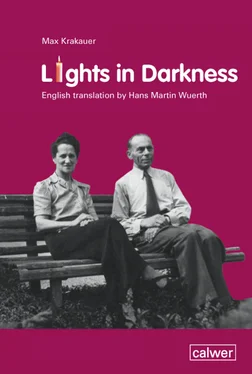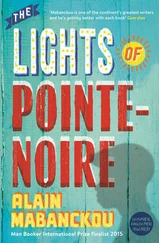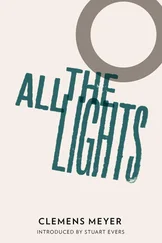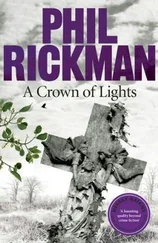We know that the Third Reich’s racist, vituperative, and discriminatory policies towards Jews were facilitated by the active and silent support of millions of German citizens. But we must also recognize the relatively few Germans who were not perpetrators, collaborators, or bystanders. Among various resistance groups were the unselfish and bold helpers whose number throughout Germany is estimated to have reached some 30,000. Among these, as stated previously, were Protestant pastors, their wives, family members, and friends. They always had to make absolutely certain that only dependable contacts could be made with persons who were willing to welcome the Krakauers and perhaps, to provide them with the names and addresses of their next hosts. Most of these contact persons were affiliated with or inspired by the Confessing Church and the Brethren’s Council. There also existed one smaller and less known protestant group that closely cooperated with the Confessing Church, the Religious-Theological Society (“Sozietaet”). Although some members of these groups were closely shadowed by the Gestapo, their voices and actions opposed the Churches’ conspicuous and deadly silence over the injustices and violence against Jews and their deportation to concentration camps.
In many studies published in recent years, the general consensus was reached that the crucial role rescuers had played during the Holocaust to save Jews, the bold actions they had undertaken, and the personal and professional dangers they and their families had faced and accepted, were ample justification for calling them heroes. On the other hand, we know that the majority of the rescuers themselves – there were many brave women among them! – did not regard themselves as heroes. Many of them stated that they simply had come to the aid of human beings who were without safety, shelter, and food, who, without the assistance of others, would have perished. Indeed, they sought few or no awards. Nonetheless, Israel’s Yad Vashem honoured thousands of them, naming them Righteous Gentiles. Similarly, the United States Memorial Museum in Washington, D.C., and other Holocaust places of remembrance recognized and honoured rescuers from several nations.
The rescuers named in Lights in Darkness were, in the words of Max Krakauer, “the real reason for writing [his] book.” In closing it is fitting to quote the following passage. “These rescuers risked their own lives as well as the existence of their families, often regardless of personal privation and hardships… Never will we, or anyone else who witnessed the deep convictions of our rescuers, be able to thank them fully for having saved us from the fangs of Hitler’s henchmen. I know they wanted no gratitude and did not desire earthly rewards; but rather, they were motivated by human love and Christian compassion. They wished to do something before God for reasons of conscience, hoping that this would diminish or make up for the bitter injustices committed against human beings whose only fault it was to be of Jewish descent. They risked their freedom and their lives. They were the good Samaritans of the Third Reich.”
I wish to thank the Calwer Verlag in Stuttgart, Germany for encouraging me to translate Max Krakauer’s memoir. For those able to read German, I recommend the original text of Lichter im Dunkel. Its new edition is attractive, smartly edited, has useful maps, and includes many valuable, never before published photographs. Finally, I wish to thank Susanne Fetzer, the committed and able associate of the Calwer Verlag. She provided valuable advice and information that made this English version possible.
Dr. Hans M. Wuerth
Professor Emeritus, Moravian College
Bethlehem, PA USA
The past day had been exhausting and difficult. I called my wife in Leipzig in the evening, as I always did when I was away on business. This time I called from a hotel in Magdeburg. In a halting and trembling voice she told me that she was sitting by the radio at that very moment, listening to a broadcast from the seat of government in Berlin where people were celebrating. Adolf Hitler had been appointed as the new Chancellor of the Reich. There were a torch parade, the endless cheers of the people, and one speech after another. „We are done for,“ I said, „I‘ll come home early tomorrow.“
When I hung up, a crackling noise in the telephone sounded gloomy and malicious. For a moment I closed my eyes. When I opened them, I noticed the calendar on the wall in front of me. An ad for Hapag was on it, with letters forming a square, and above it, a colourful ship sailing away. Beneath it was the date, January 30, 1933.
I knew the meaning of my wife‘s report as I had also heard it on the loudspeakers in the afternoon. Already I have had some bad experiences at a time, when only a handful of some 500,000-600,000 Jews living in Germany understood how much of a common threat were the names of the NSDAP and Adolf Hitler. Most of Germany‘s Jews tended to view the Nazis as a rather harmless group of ludicrous fanatics.
Since my return from World War I in 1918, I had served as the manager of a film rental agency in Leipzig. I worked tirelessly to help the business grow from its modest beginning to a well-known company. Early in 1932 we purchased the Charlie Chaplin movie „City Lights“ for the extraordinary sum of 250,000 dollars. It was a top-notch work that we and the entire German film industry thought would become a success. And it met all of our expectations – until the bad times began.
One day the Nazis, far from seizing power at that time, made what they thought was an astonishing discovery, namely that Chaplin was a Jew. They assumed that this discovery would appeal to a receptive segment of the population predisposed to anti-Semitic ideas. In their „campaign of enlightenment,“ some groups with decisively nationalist leanings claimed that Chaplin was a communist. They also shouted that Chaplin was a multi-millionaire. They tried to demonstrate that their striking method of deception was blossoming. It allowed them to come up with the most contradictory charges and to publicize them. However, no matter how hard their party media tried and their speakers ranted, the Nazis failed time and again to discredit the “Jewish millionaire-communist” and his film.
Then, for the first time, the Nazis resorted to a tactic that would lead to a far greater triumph one year later. SA troopers appeared in front of all movie theaters that showed the Chaplin film. They wanted to „enlighten“ the audience, i.e. they were determined to harass the viewers and to prevent them from entering the movie theater. When this failed, the Nazis quickly made use of „intellectual weapons“ that delivered a special punch: they used smoke bombs and firecrackers. When they introduced similar impressive weapons, the ensuing panic was even greater, and soon their goal was within reach. Owners of movie theaters who refused to lease Chaplin‘s film were frightened by such terror and personal threats. To avoid further complications, they gave in to the pressure of this manipulated „public opinion.“
The financial loss suffered by my company was substantial. It went bankrupt, in part due to the movie studio „Ufa“ that was infested with Nazis as early as 1932. Thanks to the Nazi movement my personal loss was considerable. I could not file any claims against a company that was going bankrupt. All of this was only the prelude of worse things to come. Although I was employed by the newly founded company, the political sky remained dreary. Soon darker clouds would appear overhead. Berlin was on the march, at least those Berliners who were convinced that the salvation of Germany would come once Hitler assumed power. They were cheering now, especially the young people, but also many women.
Читать дальше












